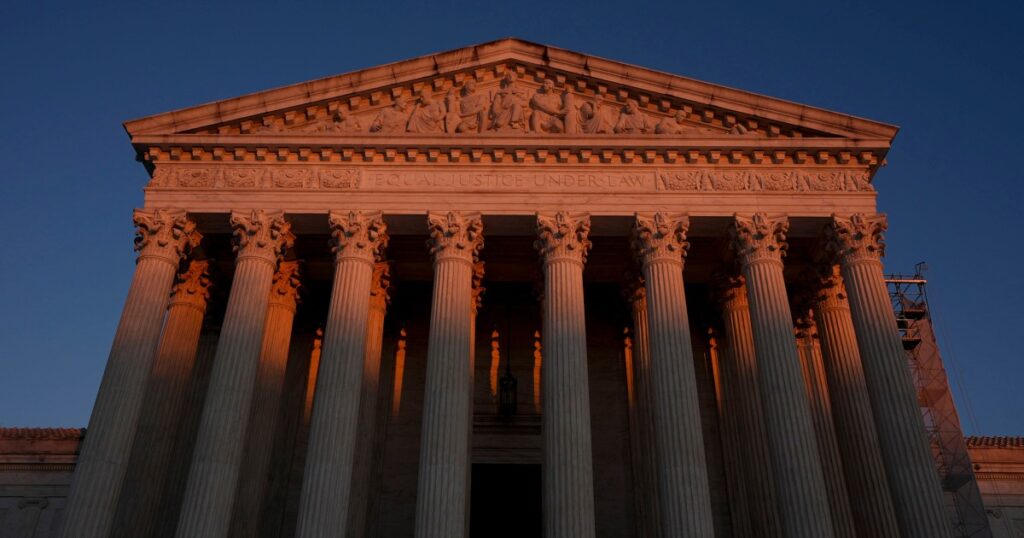WASHINGTON — The Supreme Court on Friday dealt a blow against the Trump administration’s attempt to send Venezuelans it says are gang members to a notorious prison in El Salvador, saying the detainees must have a proper chance to raise legal objections.
The 7-2 decision, which grants a request from a group of Venezuelans, clarified an unusual order issued by the justices in the early hours of April 19 that hit pause on any government plans to deport people held in northern Texas.
The justices in the latest unsigned decision faulted the administration for giving the detainees only 24 hours to launch legal challenges.
“Under these circumstances, notice roughly 24 hours before removal, devoid of information about how to exercise due process rights to contest that removal, surely does not pass muster,” the ruling said.
But the court concluded that the justices themselves, “far removed from the circumstances on the ground,” are not best placed to determine exactly what process should be followed.
Therefore, the court sent the case back to an appeals court for further proceedings to determine what due process the detainees should receive.
The litigation hinges on the Trump administration’s attempt to use the Alien Enemies Act, a rarely used 18th-century wartime law, to deport Venezuelans who officials allege are members of a gang called Tren de Aragua.
In the ruling, the court did not weigh in on the weighty underlying question of whether the Trump administration can deport people under the Alien Enemies Act.
“To be clear, we decide today only that the detainees are entitled to more notice than was given on April 18,” the court ruling said.
Two conservative justices, Samuel Alito and Clarence Thomas, dissented. Alito wrote that there were no grounds for the court to get involved at such an early stage of the litigation.
The court, Alito said, had “no authority to issue any relief.”
The Trump administration’s attempt to summarily deport immigrants without giving them a chance to contest whether they are gang members or whether the law can even be applied to criminal organizations is part of a hard-line immigration policy that has faced considerable pushback from courts as well as political opponents.
Although the Alien Enemies Act can be used only at a time of “invasions or predatory incursions,” the government has argued that those conditions are met because the gang is effectively an arm of the Venezuelan government, a claim that is heavily contested.
The court’s April order, coming just hours after a bus carrying Venezuelans left a detention center in Texas toward an airport but then turned around, put the entire case on hold while the justices figured out what next steps to take.
The Supreme Court had, in an April 7 decision, made it clear that any people the government wants to deport under the Alien Enemies Act need to be given the chance to challenge the decision via habeas corpus petitions.
There are several Alien Enemies Act cases being litigated around the country. They raise different issues from the case involving Kilmar Abrego Garcia, whom the government mistakenly deported to El Salvador, sparking another debate about due process rights.


